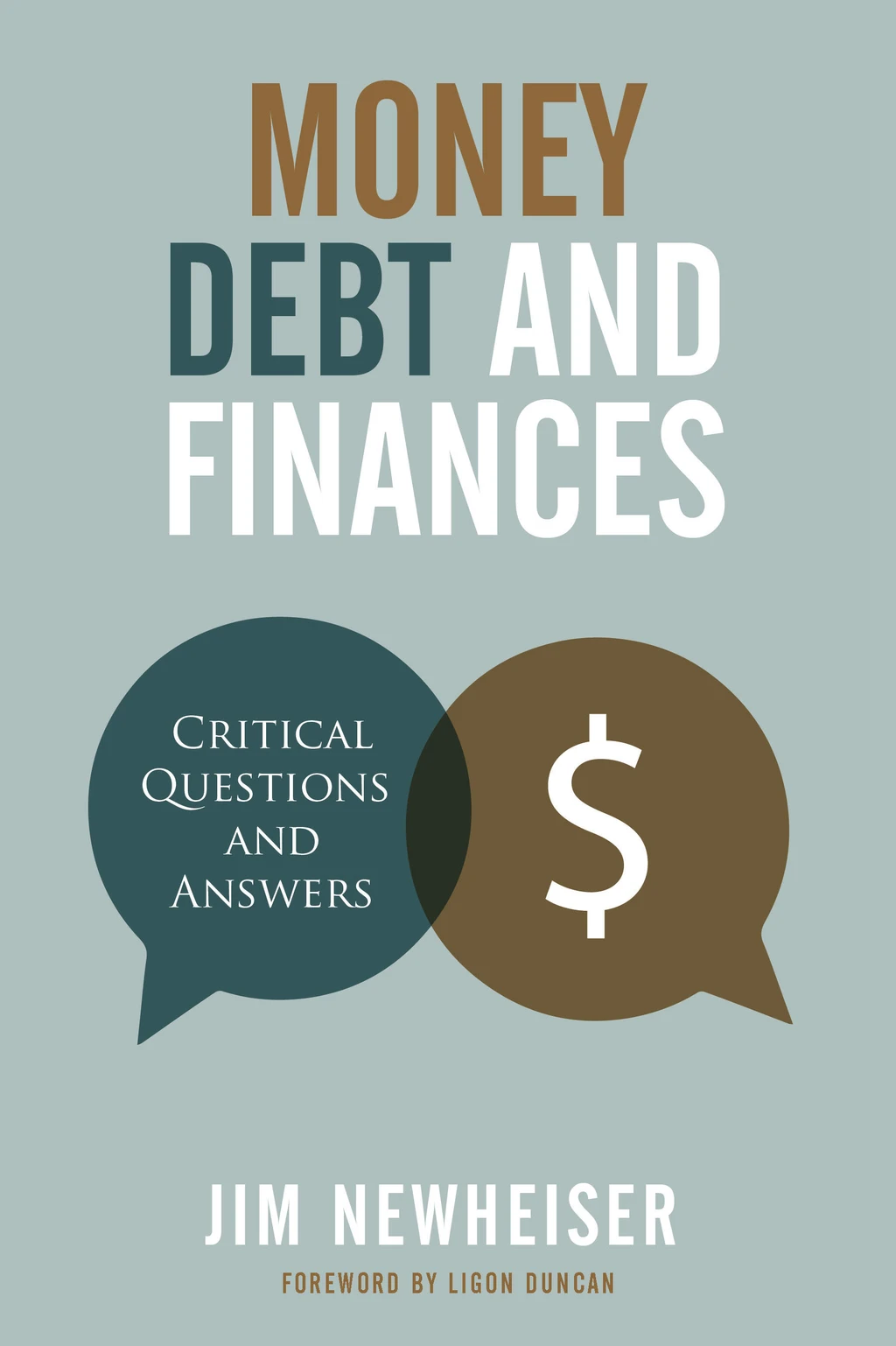
Jim Newheiser
Reviewed by: Matthew R. Miner
Money, Debt, and Finances: Critical Questions and Answers, by Jim Newheiser. P&R, 2021. Paperback, 328 pages, $15.00. Reviewed by OP elder Matthew R. Miner.
The Lord supplies pastors and teachers as gifts to the church. Dr. Jim Newheiser, himself a gospel minster, professor, and counselor, makes his own gift to the church with this magisterial “systematic theology of money.”
Newheiser brings a unique perspective. A self-described “financial junkie,” when he sensed an internal call to the ministry as a young man, he received advice from mentors to develop marketable skills alongside his ministry skills. Newheiser earned his bachelor’s degree in business and began work as a consultant to the oil industry in Saudi Arabia—where he also pastored an underground church! This unique path had two outsize results. First, Newheiser’s income during his business career funded his future seminary education and provided a financial cushion for his family during lean times in ministry. Second, he observed people around him, including professional colleagues in Saudi Arabia as well as family, friends, and fellow pastors back home, struggling with decisions related to personal finances. These experiences led Newheiser to write Money, Debt, and Finances. (Newheiser shared more of this story with the reviewer in an interview which aired August 18, 2021, on the Work Pants Finance podcast.)
The book has three goals. First, to help believers glorify God in all things, including money. Second, to share financial wisdom “grounded in faithful biblical exegesis and rooted in sound theology.” Third, to “serve as a reference for individuals and counselors to discover the Bible’s answers and apply them to . . . financial problems . . . that people face today” (xvii). The book succeeds in its aims.
Biblical truth suffuses the book: The earth is the Lord’s, and the fullness thereof (Ps. 24); God charged mankind with stewardship of his creation (Gen. 2); sin and the fall cause all suffering, including financial suffering (Gen. 3); Jesus became poor for our sakes (2 Cor. 8).
Newheiser dives deep in five sections: General [biblical money] Principles, Acquiring Money, Spending Money (including biblical generosity), Debt, and Preparing for the Future. Each section is loaded with dozens of biblical texts addressing prosaic questions on myriad issues including tax, debt and cosigning within families, budgeting, seeking cash discounts, the notion of private property, sins of greed and covetousness, how to think about multilevel marketing in local churches, and much more. Topics are addressed in a question-and-answer format.
For most, the book will not make great beach reading, and Newheiser states that it’s intended as a reference. The table of contents, appendices, recommended resources, index of Scripture, and index of subjects and names are excellent and reflect Newheiser’s care as an author and academic. My only criticism is that while the tone is always kindhearted, the book is light on pathos. In my experience it helps to combine emotion with logic when talking to people about money, an emotional topic. Mercifully, Scripture makes its own appeal, and there’s a lot of Scripture here. Ministers, elders, deacons, and church members who reference or read Money, Debt, and Finances will be blessed by biblical answers to their money questions and abundant proof of just how much God’s Word says on this topic.
April 13, 2025
Suffering: God’s Purpose in Our Pain
April 06, 2025
Sunday Matters: 52 Devotionals to Prepare Your Heart for Church
March 30, 2025
On the Trail with a Missionary
March 23, 2025
Midnight Mercies: Walking with God Through Depression in Motherhood
March 16, 2025
March 09, 2025
Zwingli the Pastor: A Life in Conflict
March 02, 2025
© 2025 The Orthodox Presbyterian Church